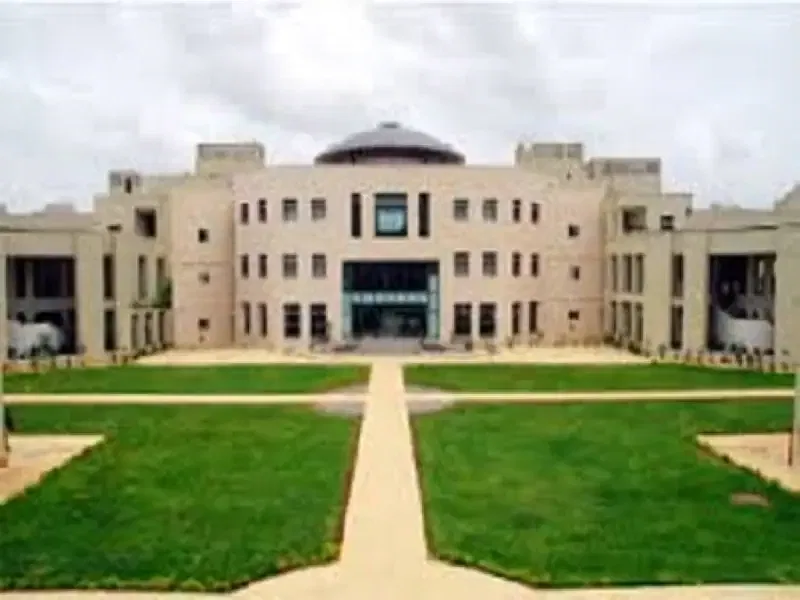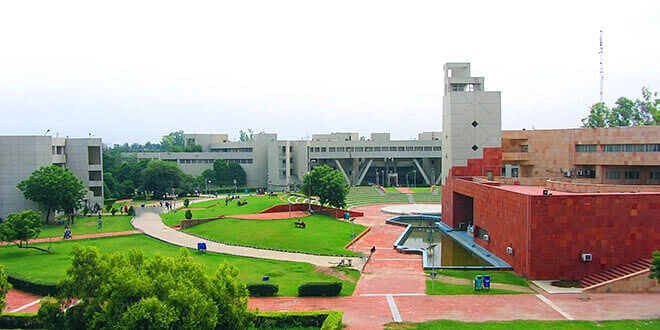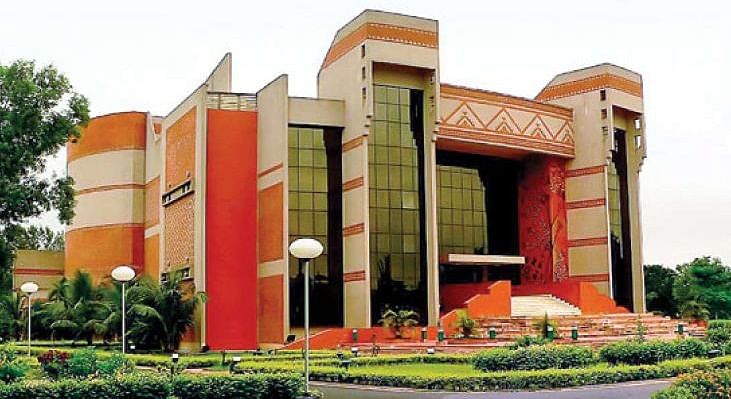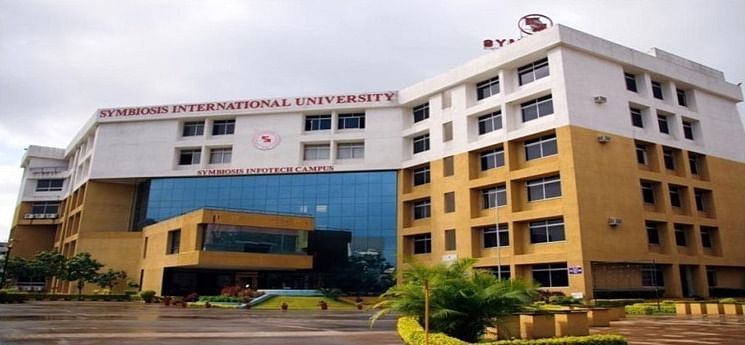Executive MBA Syllabus and Subjects

The Executive MBA syllabus is designed for working professionals with years of experience and focuses on practical and theoretical knowledge in the subject areas for the students with core subjects such as Innovation and Entrepreneurship, Negotiation and Conflict Resolution Management etc. The EMBA course is divided into four semesters under two years.
In the EMBA syllabus, candidates are focused on gaining skills that require efficient management of time, organisation and leadership qualities. The industry-oriented nature of the course opens many job opportunities such as Product Manager, Sales Head, Finance Manager, etc.
Table of Contents
- Semester Wise Executive MBA Syllabus
- Executive MBA Subjects
- Executive MBA Projects
- Executive MBA Teaching Methodology and Techniques
- Executive MBA Reference Books
Semester Wise Executive MBA Syllabus
The executive MBA syllabus emphasizes marketing, accounting, human resources, supply chain management, and more. The three sections of the executive MBA course include the core subjects, electives, and project work. The following table gives the semester-wise syllabus of the Executive MBA.
Executive MBA First Year Syllabus
In the first year of an Executive MBA, candidates study core subjects that focus on the foundation of management principles for executives. The table below shows the semesters in the Executive MBA first-year syllabus:
|
Semester I |
Semester II |
|
Principles of Management and Organisational Behaviour |
Negotiation and Conflict Resolution Management |
|
Business Environments |
Productions and Operations Management |
|
Marketing Management |
e-Commerce |
|
Accounting and Finance for Managers |
Strategic Marketing |
|
Business Statistic |
Executive Communication |
|
Computer Applications in Management |
Business Research Methodology |
Executive MBA Second Year Syllabus
The second year of EMBA is focused more on impairing students with skills related to becoming an executive, along with electives, projects, dissertations and internships. The table below shows the semesters of the Executive MBA second-year syllabus:
|
Semester III |
Semester IV |
|
Business Acumen |
Executive Career Acceleration Pathway (ECAP) |
|
International Trade and Business |
Entrepreneurship and Small Business Management |
|
Marketing (Elective) |
Integrative Decision Making |
|
HR Management (Elective) |
Blue Ocean Strategy (Elective) |
|
Finance (Elective) |
Dissertation/ Project Work |
Also Read: Steps to Build Your Profile for Admission to Top MBA Colleges in India
Executive MBA Subjects
MBA Executive subjects are classified into core and elective subjects. The subjects covered in the Executive MBA syllabus are similar to MBA subjects, with the addition of a few topics related to executive management.
The MBA executive subject list is given below:
Executive MBA Core Subjects
The list of core papers for the MBA Executive subjects is provided below:
- Business Economics
- Management Accounting
- Business Statistics
- Research Methods for Management
- Principles of Management and Organisational Behaviour
- Productions and Operations Management
- e-Commerce
- Business Environment and Ethics
Executive MBA Elective Subjects
The following electives are included in the MBA executive subject list:
- Marketing
- Finanace
- Human Resource Management
- Operations
- Entrepreneurship
Executive MBA Subjects In Detail
The Executive MBA Syllabus focuses on topics that highlight important skills required to become executives and make executive decisions. The table below is the MBA executive subject list in detail.
| MBA Executive Subjects | Topics |
| Principles of Management and Organizational Behaviour | Management: Science, Theory and Practice, The Nature of Organizing, The System and Process of Controlling. |
| Accounting and Finance for Managers | Financial Accounting, Financial Statement Analysis, Cost Accounting, Marginal Costing, Cost Capital. |
| Business Communication | Introduction and conceptual understanding, Business Communication or skills, Instruments of internal communication, report and proposal preparation. |
| Computer Application in Management | Evolution of Computers, Input devices and functions, Memory, and the Internet. |
| Financial Management | Finance Function, Meaning of Financial Management, Capitalization, Dividend Policy, Working Capital Management. |
Also Read: Top 10 Skills Required for MBA Students to Succeed
Executive MBA Projects
The executive MBA syllabus contains projects, also known as presentations or dissertations, focusing on strategic management, planning, analytical thinking and problem-solving. Candidates are required to submit it at the end of the second year. Given below are some of the project topics in Executive MBA:
- Study of marketing promotions
- Study on Consumer behavioural pattern
- A Study of the Six Sigma Implementation Process at a Manufacturing Company
- Analysis of the employee’s satisfaction level o in the Banking and financial services sector
- Impact of good and service tax on the fast-moving consumer goods sector in India
Also Read: Executive MBA Vs Distance MBA
Executive MBA Teaching Methodology and Techniques
The Executive MBA syllabus is taught using the Lifelong Learning Programmes (LLP) for managers and professionals. The main goals of lifelong learning programmes are to help participants become more capable leaders and to comprehend the most recent developments in professional leadership theory.
In short, the teaching methodology and techniques are:
- Group Projects
- Discussions
- Case Methodology
- Workshops
- Internships
- Management Sessions
Also Read: Top 12 Benefits of Executive MBA Program 2024
Executive MBA Reference Books
Listed below are the important Executive MBA reference books for the course:
|
Books |
Topics |
Author’s Name |
|
MBA Fundamentals Accounting and Finance |
Accounting, Finance, Management of Finance |
Michael P. Griffin |
|
Soft Skills Business and Professional Communications |
Ethics, Values, Interpersonal and Intrapersonal Communication, Email Writing |
Sutapa Banerjee |
|
Macroeconomics for MBAs and Masters of Finance |
Macroeconomics, Finance, Stocks, Derivatives |
Morris A Davis |
|
Finance and Accounting for Nonfinancial Managers |
Non-Finance Managers, Accounting Systems and Software (Tally) |
Samuel C. Weaver and J. Fred Weston |
Also Read: Executive MBA for Working Professionals
Top Executive MBA Colleges
Top Management Entrance Exams
Executive MBA Fee Structure
FAQs on Executive MBA Syllabus and Subjects
Q: Is the EMBA syllabus similar to the regular MBA syllabus?
The curriculum for both courses is quite similar. The only difference is the pace, as the EMBA course is completed at a somewhat faster pace due to the shorter term and the value of working professionals' time.
Q: What are the elective subjects in Executive MBA?
The Executive MBA course includes electives such as International Business Economics, Corporate Image Building, Consumer Behavior, International Marketing, Stress Management, Production Planning and Control, and Materials Management.
Q: How many semesters are there in the Executive MBA?
The Executive MBA learning path completes the entire intensive course in 12-18 months, depending on the type of Executive MBA and university. Based on that time frame, an Executive MBA consists of 6-8 terms.
Q: Are there any specializations in Executive MBA?
Executive MBA concentrations include Marketing, Leadership and Strategy, Digital Marketing, Applied Finance, and Operations & Supply Chain. In addition, the course offers the option of dual specialization.
Q: Which specialization is considered best in Executive MBA?
Human Resource Management is a popular Executive MBA focus for those who desire to create a career on the principles of leadership, communication, and collaboration. Other famous specialities are EMBA Finance and EMBA Business Analytics.
























